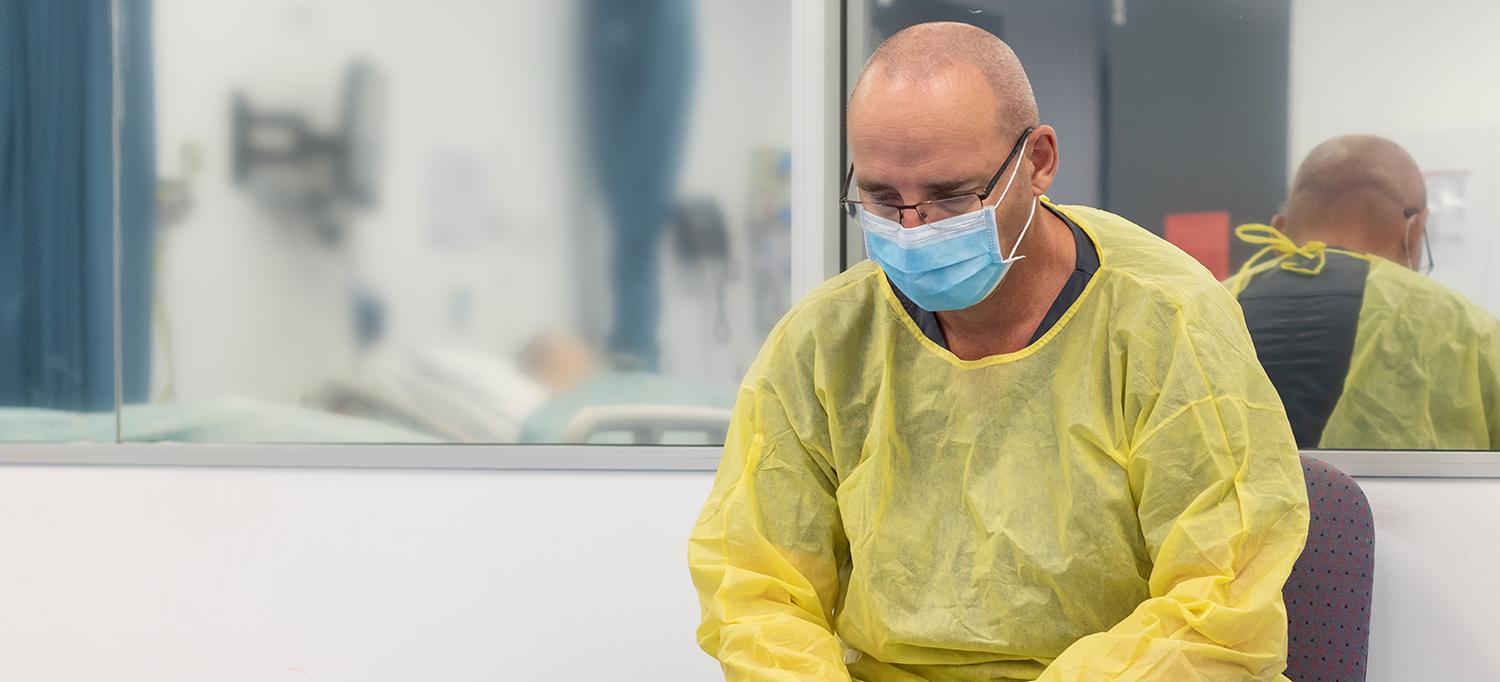
Photo: Vicki Smith/Getty
Now that the coronavirus patient counts are receding and the emergency departments and intensive care units are less crowded, healthcare workers are finally catching their breath and preparing for the next wave in what could be a very long-running war.
“That’s the right word for it, war,” says Marra G. Ackerman, MD, clinical assistant professor in the Department of Psychiatry at NYU Langone Health. “This is a healthcare war, and post-traumatic stress disorder is part of the equation. Even with all the massive stresses, a majority of frontline healthcare workers will not go on to experience major mental health issues. But most of them will have some degree of distress, anxiety, difficulty sleeping, irritability, or just feeling down.” Three months into the worst of the crisis, “lots of people are experiencing those feelings already.”
For healthcare workers experiencing these issues, it’s important they seek help. “It’s like what they tell you on the airplane,” Dr. Ackerman says. “Put your oxygen mask on first. If we don’t practice self-care, we risk burning out, and we risk not being able to provide the ideal care at the bedside.”
As director of the house staff mental health program at NYU Langone, Dr. Ackerman has organized 25 support groups for the hospital system’s employees while simultaneously maintaining a busy one-on-one therapy practice. She and her team are also there for a prompt consultation when a hospital staffer needs one and are constantly on the lookout for signs of spiking distress.
“A lot of what we can provide is validation,” she says. “Basic support. What we call psychological first aid. How do you create a sense of calm? How do you manage anxiety? How do you reground yourself in the moment? It is really hard.”
There are tools to help with that. “We use what we call radical acceptance,” Dr. Ackerman says, “trying to accept the things that we can’t change and acknowledging the feelings that come with that. The sadness, sometimes.”
Read more from MarketWatch.

